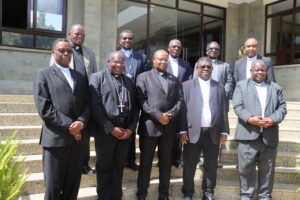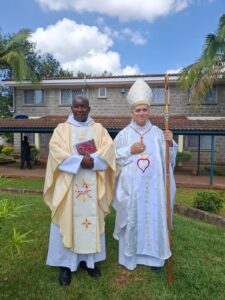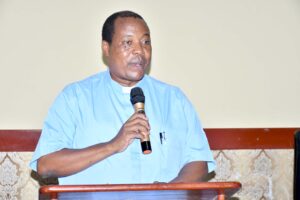AMECEA: Missio Aachen Ready To Journey With AMECEA Towards Establishing Regional Grants Office
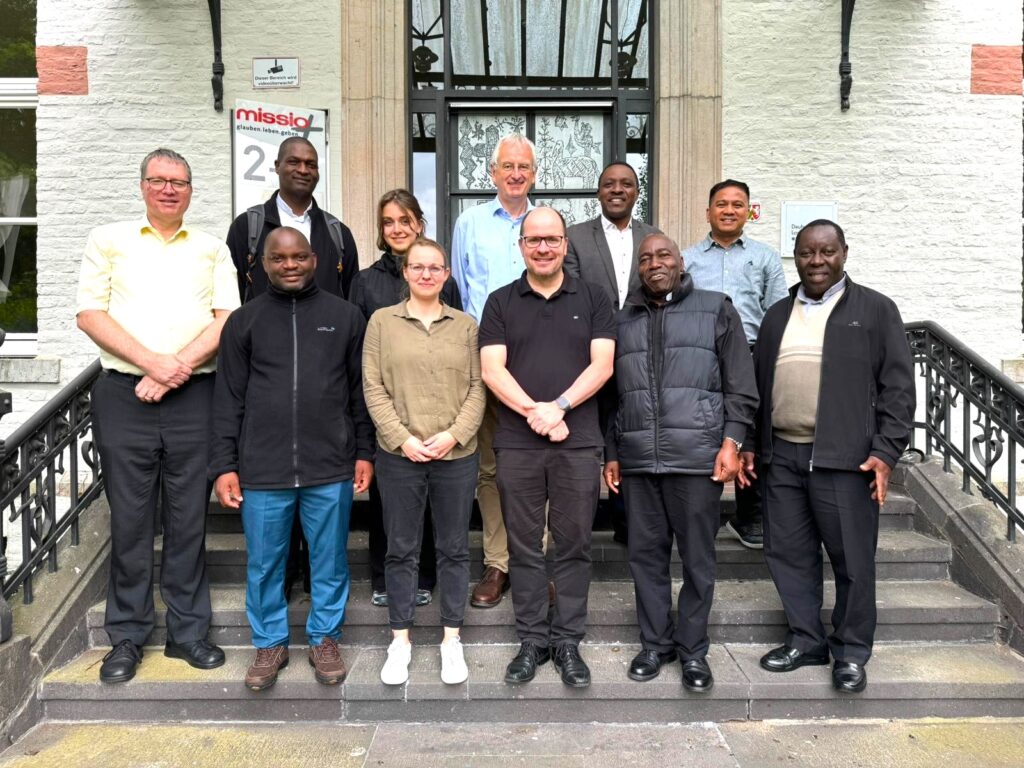
Missio President & AMECEA Team
Andrew Kaufa smm
The training of delegates from AMECEA region at Missio Aachen on project funding processes has ended with a way forward that promises a strengthened collaboration between the funding agency and the local partners based on subsidiarity, a principle that the local Church play a key function that can only be performed better at the local level regarding projects funding and monitoring of implementation.
Missio Aachen’s Foreign Department offered the four-week training at its head office from 3 June to 3 July 2024 and covered various topics including the historical background to the organization; Missio project funding guidelines and processes, the offline and platforms for project application and decision making, including Missio Safeguarding policy minimum standards.
As a way forward, the participants together with various Missio Projects Officers looked at the variation of needs in the member episcopal conferences within AMECEA region and how such an office would effectively operate. They further considered the magnitude of work and the diversity of social, economic, political, religious and cultural contexts within AMECEA region, and the technical requirements. On this basis, they recommended to Missio and AMECEA bishops that they also seriously consider the possibility of having a full-time officer at regional level who will be supported by network of collaborators from the conferences.
At the end of the training, the participants shared their enthusiasm about the role of such a regional office, with a suitable full-time officer recruited and situated at AMECEA Secretariat in Nairobi.
Commenting on the training, Fr Pontian Kaweesa who represented Uganda Episcopal Conference appreciates the clarity of the Missio Projects Guidelines.
“I have learned that a well-conceived project, duly written according to Missio guidelines and protocol, can be brought to birth with funds to get it started up to completion,” he said.
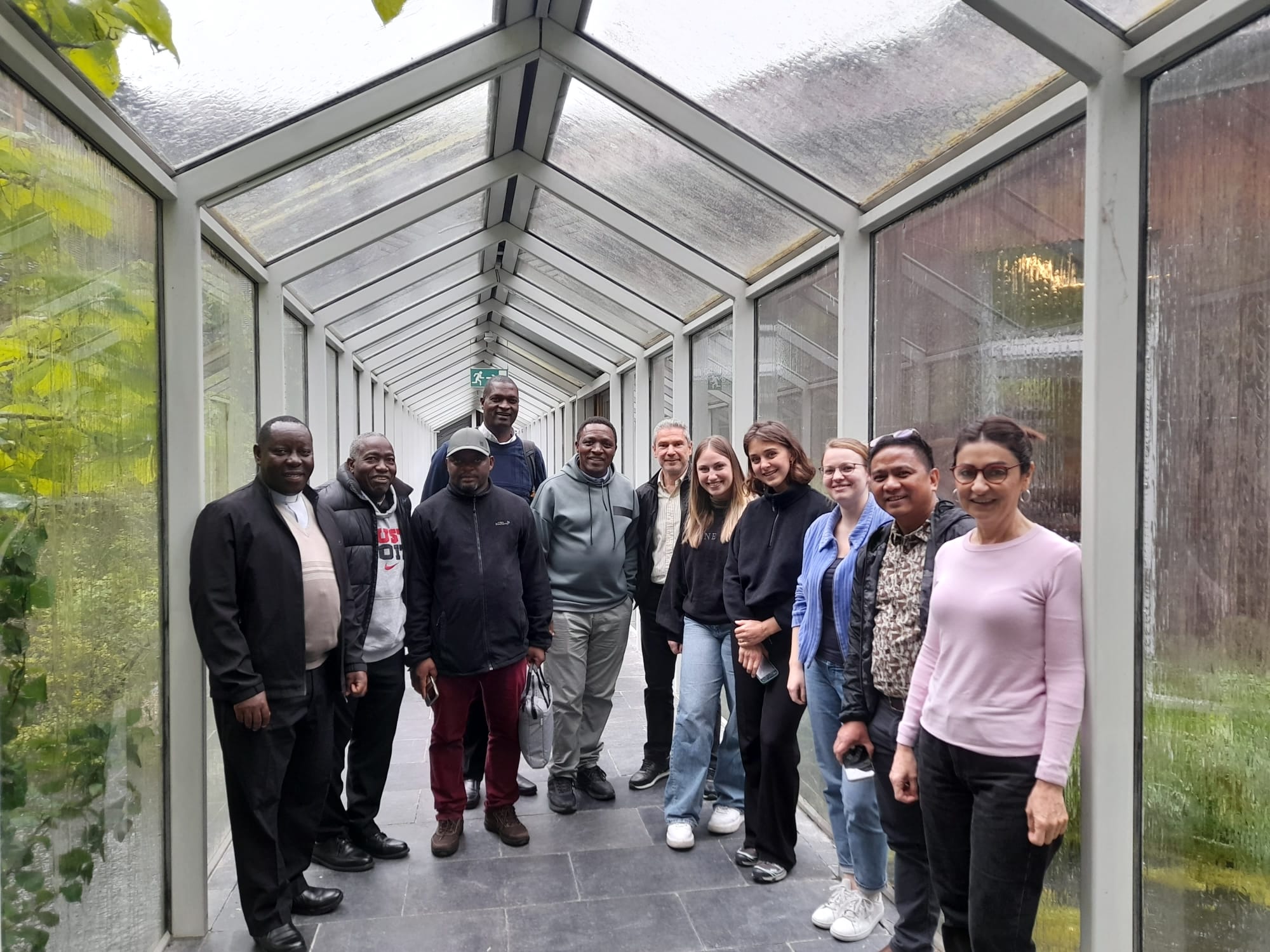
“Provision of sufficient reports is a must and a condition for receiving funds for future applications. There should be no room to antagonize the Missio process for assisting where there is need to serve humanity in the Catholic Church,” Fr Kaweesa continued.
“I like the catch words of Missio in German: Glauben (Believe), Leben (Live), Geben (Give),” Fr Kaweesa said, in appreciation of the organization’s mission.
On his part, Fr Benjamin Mfaume who expressed the need for a professional approach to projects in AMECEA region said: “I have learnt about the responsibility on the grantees to be accountable to the funding partner when they receive the financial support. The Church must insist on professionalism and responsible coordination to comply to the Missio principles and avoid their institution being blacklisted and barred from future funding.”
The Missio Aachen Foreign Department has expressed that this dream to create a regional office is, in fact, doable and reiterates their readiness to journey with AMECEA if the idea to establish a regional office is endorsed by the leadership.
The Foreign Department argues that other institutions, in Africa and beyond, have already started walking the talk. These include the Association of Consecrated Women in Eastern and Central Africa (ACWECA), the Federation of Asian Bishops Conference (FABC) and the Catholic Bishops Conference of the Democratic Republic of Congo.
Ms Lea Mickenberg-Esser the lead trainer at Missio says she is looking forward to this regional grant office project being realized.
“I firmly believe that our cooperation will intensify in the long term and that we will now go ‘new ways’ together,” she said adding, “I look forward to intensified cooperation between Missio Aachen and AMECEA. The local Church continues to be essential for our work, and we hope to further strengthen it through this process of subsidiarity.”
According to her, “The participants from the conferences are now our contacts in the countries and shall serve as an important point for our project work in the region.”
